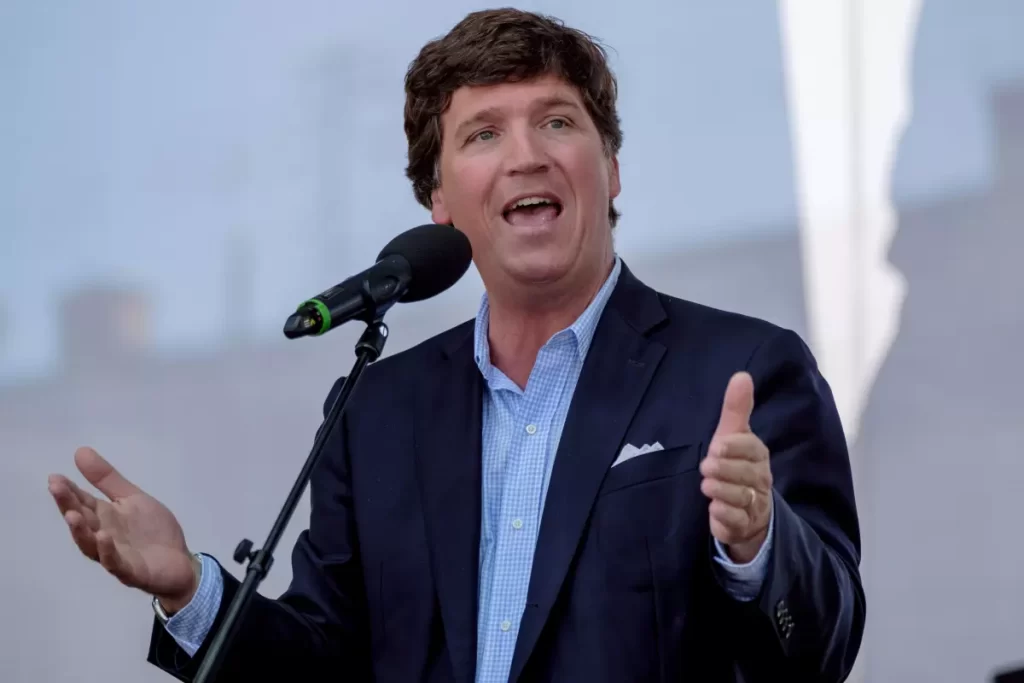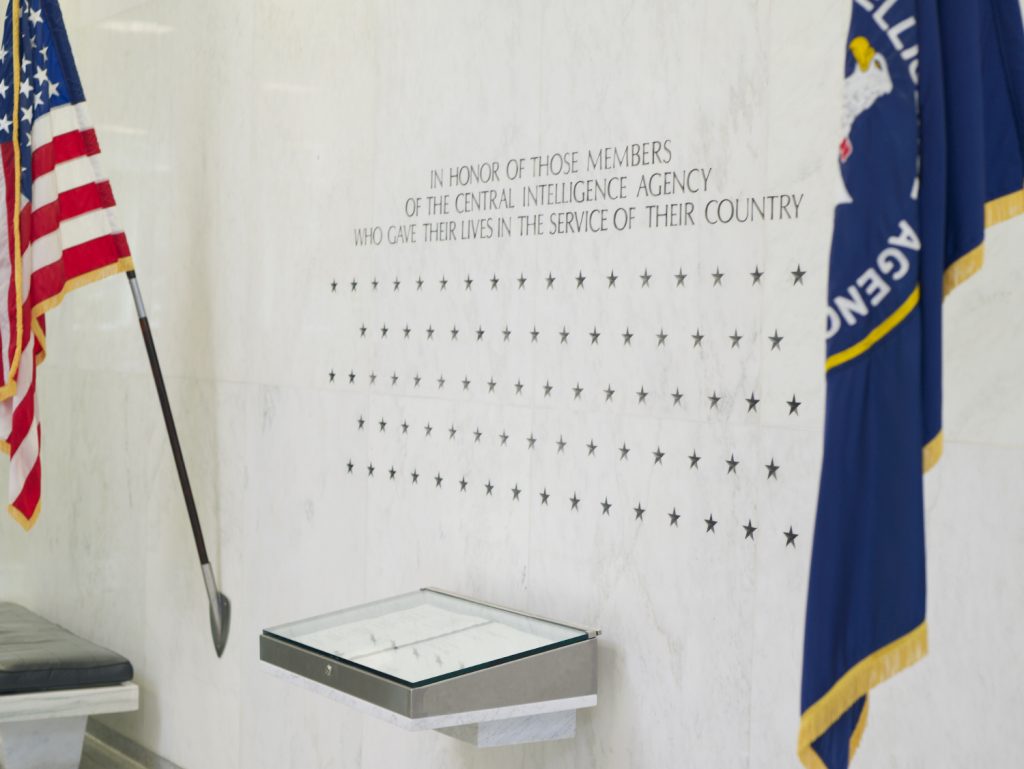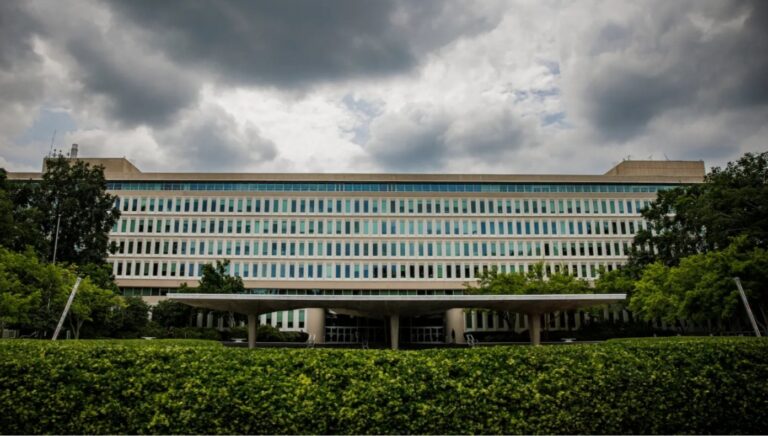Among sweeping changes to the federal bureaucracy announced by the Trump administration as part of its ambitious agenda for its second term is the plan to reform the Central Intelligence Agency. Donald Trump has long been distrustful of the intelligence community in general and the CIA specifically, having made accusations of the “Deep State” following alleged radical agendas, persecuting him unfairly, and pushing subversive and costly plans, such as an allegedly destabilizing US role in foreign military entanglements. Therefore, it should come as no surprise that one of the top priorities for Trump would be to engage in purging and radical restructuring of agencies such as the CIA, which he sees as key to stopping the bureaucratic resistance of his “America First” agenda. There are several key reasons Trump is focusing on the changes to the mechanisms entrenched at the heart of the US security considerations.
Increased Accountability and Oversight:
Trump repeatedly argued that the CIA (and the broader intelligence community) was biased and unaccountable. His approach often emphasized tighter presidential oversight and called for stronger internal reviews to ensure that intelligence operations were politically neutral and aligned with national security priorities. Trump believes that the intelligence agency has become too burdensome, inflexible, and politicized by his predecessors. He blames Obama and Biden hires for undermining the intelligence collection and analysis process, for the wrong priorities, and for the alleged violations against Americans. Part of his reform would include installing individuals he believes loyal to his agenda and to him personally and charging them with instituting further reforms.
Reprioritization of Threats:
He criticized what he saw as a misplaced focus within the intelligence community. There was a call to shift attention toward what he considered more pressing threats—such as challenges from nations like China or emerging security concerns—rather than lingering on issues that he claimed were overemphasized. These issues included the role of Russia, fixation on climate change, allegedly excessive focus on far right/right extremism, and others. More specifically, the administration has expressed dissatisfaction with Global Counterterrorism Operations.
The administration believes that the CIA’s extensive focus on global counterterrorism, particularly in regions like the Middle East, has diverted resources from other pressing threats.
There is a perception that the CIA has concentrated heavily on traditional intelligence activities, potentially at the expense of emerging challenges.
In response to these concerns, the administration is steering the CIA to prioritize issues such as countering drug cartels. Under Trump, CIA would be enhancing efforts to combat drug trafficking organizations, especially in the Western Hemisphere, to address the domestic impact of illegal drugs. The reforms also advocate for increased emphasis on utilizing espionage to gain leverage in trade negotiations. This represents a move away from traditional intelligence activities towards more aggressive covert operations. Of course, addressing China’s global influence would also come into play. Trump wants the Agency to realign its resources with addressing China’s expanding global presence and its implications for U.S. economic and national security interests.
None of these changes are realistic without personnel restructuring to ensure a dedicated response to the President’s demands.
Leadership and Personnel Changes
A hallmark of Trump’s method is replacing top officials who he feels does not support his agenda. His approach often involved installing leadership more aligned with his views, which he argued would bring a fresh perspective and improve operational efficiency. He has done so during his first term, and is making similar changes now across the board. However, his approach to restructuring the CIA is far more sweeping now than the limited leadership changes Trump has instigated during his first term, in part because he has come to believe that it is not just a few political appointees, but the entire ecosystem of the Agency that it is problematic. Ironically, Trump’s CIA in many cases followed the Obama policy on many issues, including the denial of the Havana Syndrome threat, eventually revealed to be linked to the Russian GRU weapons, or the use of drones in counterterrorism operations.
Streamlining Operations and Enhancing Efficiency:
Trump frequently claimed that the CIA was bogged down by bureaucracy and inefficiency. His proposed reforms hinted at reducing what he deemed redundant or ineffective programs to sharpen the agency’s focus on actionable intelligence. Reducing these inefficiencies would mean a significant regulatory review, elimination of redundant bureaus and directives, consolidation of some activities, reduction in overall personnel, and eliminating some positions to reduce red tape.
Combating Perceived Internal Bias:
One of Trump’s most persistent critiques was that the intelligence community was “anti-Trump” and predisposed to discredit his policies. His reform rhetoric included calls to ensure that intelligence analysis remains objective, though critics have argued that achieving true objectivity is complex and that politicizing intelligence risks undermining its credibility. Of particular concern to that effect is that the personnel currently surrounding Trump is prone to rubber stamp Trump’s policies, has suspicious links to foreign malign influence and foreign business interests, and advocates views and policies that could strengthen US adversaries such as Russia, China, and Iran. These concerns include the potential fallout of the conflicts of interests related to the prospective Director of National Intelligence Tulsi Gabbard, who would be positioned to oversee the CIA and other agencies, and could use her position to make calls which impact issues ranging from funding to implementation mechanisms to interoperability among agencies, as well as hiring and vetting processes, certain types of policies, and coordination with other government agencies and foreign counterparts.
The appointment of CIA Director John Ratcliffe, by contrast, has been met with little controversy despite his record of loyalty to Trump. According to the reports, during the pre-inaugural transition, the integration of Trump intelligence personnel into the existing frameworks was going smoothly. However, despite the seeming seamlessness of the process, rumors soon emerged that Trump could blow up the current intelligence framework altogether, for instance, by canceling or subverting the Five Eyes agreement with some of the US closest intelligence counterparts, or indirectly imploding it by staffing his agencies with untrustworthy personnel. The Five Eyes alliance is a longstanding intelligence-sharing partnership among the United States, Canada, the United Kingdom, Australia, and New Zealand. This collaboration has been instrumental in providing comprehensive global intelligence coverage, enhancing each member nation’s ability to address security threats. Canceling or withdrawing from the Five Eyes agreement would have significant implications for U.S. national security and result in diminished intelligence sharing. The U.S. would lose access to valuable intelligence collected by partner nations, leading to potential blind spots in global surveillance and a reduced capacity to anticipate and respond to international threats. Another impact could entail an increased resource burden. Without the collaborative framework of Five Eyes, the U.S. would need to independently gather intelligence across various regions, necessitating substantial increases in funding, personnel, and technological resources to maintain current intelligence capabilities. Finally, undercutting close intelligence cooperation with key counterparts could result in weakened alliances. The dissolution of this agreement could strain diplomatic and military relationships with key allies, undermining trust and cooperation in other critical areas of national security and foreign policy. Of course, whatever strikes at the core of US intelligence relationships conversely leads to enhanced adversary opportunities. Adversaries like Russia and China could exploit the lack of coordinated intelligence efforts among the Five Eyes nations, potentially increasing their influence and operational success against U.S. interests.
The very fact that such discussions and speculations are taking place is concerning because it alludes to the growing distrust in the US as a reliable partner. Moreover, the proposal to radically transform a key aspect of intelligence sharing mechanism comes at a time when Russia, China, Iran, and North Korea have formed an effective axis against the West, and effectively streamlining, integrating, and enhancing their own intelligence capabilities, while drawing in a growing number of supportive or satellite actors from Europe, the Global South, and other areas, into their intelligence and security frameworks. Just as importantly, the very process of Trump’s efforts to restructure CIA while simultaneously blowing up or eliminating other foreign policy-linked agencies such as the USAID, may come at too high a cost to account for any benefit of such restructuring. This purported process has raised many questions not only from the intelligence community but from many other vested interests in US stability and security.
Buyout Plan
The reported restructuring plan involves making the same offer to the CIA staffers as has been made by Trump to other federal agency employees. It involves downsizing the bureaucracy by offering early retirement packages or financial incentives for long-time CIA employees to leave voluntarily, reducing the agency’s size. However, these buyouts are not only being offered to some segment of redundant positions or to employees identified as potentially not being in line with the “America First” objectives. Rather, the sweeping buyouts are being offered to the entire workforce, which means, that ultimately 100% of the CIA workforce could be gone immediately to be compensates for 8 months of work ahead. The original plan involved cutting positions deemed redundant or not directly contributing to core intelligence functions, but in practice, the Trump administration seems to be going far beyond that, leaving questions about the message about US intelligence readiness being signaled to adversaries in the meantime, and certainly giving ground to speculation about finding sufficient qualified staffers to replace the ancien regime.
Another aspect of the plan includes reducing outsourcing and the use of private contractors. This process would involve bringing some outsourced intelligence operations back in-house to reduce reliance on private contractors. Another point in this plan is the potential “buyback” of intelligence functions previously handed over to private firms, ensuring more direct government control over sensitive operations. Much of this transition is about cost-cutting and eliminating overly pricey and allegedly corrupt contracting positions, following the outrage over the approximately $8 trillion dollars spent on military operations in Afghanistan, Pakistan, and Iraq in the 9/11-afermath. The concern over spending may be legitimate, but there is no clear process for accounting for these costs. DOGE, the “special federal committee” staffed with “special federal employees” like Elon Musk, is tasked with cost-cutting across all of federal government, but the process of identifying the contracts to be bought back or streamlined could be extensive and time consuming. Musk’s business dealings with foreign actors ranging from China to Qatar, Saudi Islamist investors into X, and Russian oligarchs have raised questions about his impartiality and conflicts of interests in undertaking such an endeavor. The fact that he has reportedly attempted to obfuscate the make-up of DOGE is likewise troubling. Far beyond foreign malign influence, the basic question over DOGE is whether the businesspeople at the helm of it have sufficient experience and judgment to make qualified assessments of intelligence and security spending, and the viability of these contracts inside or outside the agency.
Besides, contracting out some functions of the security process was in itself supposed to be a cost-cutting measure that would relieve the taxpayers of some of the burden by privatizing the process, and by making it more competitive. Moreover, returning these contracts back into the fold would require sufficient – and sufficiently equipped – staffing to address these issues, which would be at odds with the buyout plan that could eliminate most of the current force within a few months. Critics of this plan argue that either it is doomed to failure, or the assessment process itself could be a boondoggle for Musk and his assistants to extract concessions from the contractors in exchange for allowing them to keep the contracts. Others, on the other hand, fear that the buyout mechanism is a thinly veiled effort to eliminate most of the agency altogether, living negligible functions at the disposal of a few close associates of Trump, and thus endowing them with excessive power.
Yet another function of the downsizing is the impact of restructuring leadership and what that means for political influence. One of the ideas behind offering buyouts to senior officials is seen as too entrenched in past policies or resistant to new leadership directives. However, it now appears that Trump was convinced that most, if not all, of the CIA workforce consists of deep staters and entrenched opposition who would not follow directives. In this light, questions are raised about the interests and objectives of Trump advisers who are pushing him in the more absolutist direction on this question. For instance, Tucker Carlson in particular stands to benefit the most from near-complete elimination of the CIA. Tucker Carlson, a vocal critic of the U.S. intelligence community, has frequently expressed distrust toward the CIA, arguing that it operates with too much secrecy and wields excessive influence over American politics. If the CIA were eliminated or significantly weakened, several potential benefits for Carlson could emerge, both politically and professionally:

More on this story: Russia still on with effort to meddle in U.S. elections
Political and Ideological Validation
Carlson has long accused the CIA of working against populist movements and interfering in domestic affairs. If the agency were dismantled or severely curtailed, he could claim victory in his broader narrative that unelected bureaucracies manipulate policy behind the scenes.
This would reinforce his credibility among his audience, which often shares his skepticism of the “deep state” and intelligence agencies.
Media and Influence Expansion
As a major critic of the CIA, Carlson would likely capitalize on such a reform by increasing his media presence.
He could frame the CIA’s dismantling as a historic victory against government overreach, further boosting his influence in conservative and libertarian circles.
Political Leverage
If the CIA were significantly restructured or eliminated, Carlson could leverage this momentum to push for further dismantling of other intelligence or government institutions he sees as corrupt.
This could also open doors to direct political influence, should he ever consider running for office or playing an advisory role in a future administration.
Investigative Opportunities
Without the CIA’s oversight and classified restrictions, more historical intelligence operations might be declassified or exposed, providing material for investigative reporting that aligns with his political stance.
He could lead media efforts to scrutinize past CIA actions, further building his brand as an anti-establishment voice.
Potential Downsides or Risks
While eliminating the CIA would benefit Carlson in terms of narrative control, it could also raise security concerns that he would have to address.
He might need to defend against accusations that weakening intelligence capabilities could empower U.S. adversaries. However, so far, Tucker has deflected from such accusations, blaming the perception of US adversaries on “neocons” and “warmongers”. Tucker has become notorious for his uncritical position towards Putin, whom he interviewed in a fawning two-and-a-half-hour extravaganza, as well as Putin’s ideological proponents such as Alexander Dugin. Tucker has also expressed sympathy towards Hamas and even China. The fact that the more radical bent of this effort to reduce CIA to a skeleton crew likely stems from Carlson and his current sympathies is deeply concerning.
Carlson would benefit from the CIA’s elimination by strengthening his brand as a truth-seeker exposing government corruption. It would give him new political and media opportunities, aligning with his broader agenda of challenging the U.S. intelligence establishment.
Carlson aside, other critics of the Agency argue that replacing personnel with those more aligned with the administration’s national security vision would strengthen US ability to be flexible and more responsive to current challenges, more resilient, and less prone to mission creeps and stalling the President’s agenda. On the other hand, concerns align over the willingness of Trump loyalists to challenge impracticable proposals or to advocate for alternative solutions that could run counter to Donald Trump’s instincts or to the agenda of his advisers. Most concerning is whether these appointees and new hires or the team vetting them would have sufficient experience and understanding of the threat environment to do their job effectively and to hire capable and competent intelligence officers.
Another consideration in the structure of the buy-out plan affects cost-cutting measures. The Trump team is bought on the idea of streamlining CIA operations to focus on core intelligence gathering, reducing spending on programs viewed as inefficient or outdated. The issue of course is that eliminating traditional intelligence operation would leave the CIA and the US vulnerable to risks and threats from the more traditional corners. Critics argue that Russian active measures and sophisticated intelligence operations are, for instance, overlooked and undercounted as is. The US, critics argue, is underprepared for some of the traditional threats ranging from foreign malign influence campaigns and information warfare to the spread of extremism and emerging terrorist threats. Excessive focus on organized crime operations would take away from that purpose just as US adversaries have figured out that US is once again pivoting towards some novel objective while leaving blind spots towards the allegedly expired (yes still functional threats).
Another purpose for the restructuring is the effort to consolidate overlapping agencies or intelligence units to cut operational costs. The criticism about excessive duplication of some agency and directorate operations is reasonable, but much will ultimately depend on the implementation, priorities, personnel, and policy.
The pushback against this initiative is closely linked not only to the entrenched interests of a bureaucracy to perpetuate itself as some of the more hardline Trump administration critics of the intelligence community argue, but with legitimate concerns about a rapid downsizing by a relatively small group of peple with no red teaming of these prospects. One of the biggest concerns pertains to the career officers and other staffers who have been diligently performing their duties regardless of administration policies and internal politics. The loss of experienced personnel could come back to haunt the administration and its successors. The buyout program may lead to the departure of seasoned intelligence officers whose expertise is crucial for complex operations. The loss of institutional knowledge could impair the agency’s effectiveness in gathering and analyzing intelligence. Rapid and indiscriminate changes could lead to morale and trust issues.
The sweeping nature of the buyouts might create uncertainty and anxiety among remaining staff, potentially leading to decreased morale. Employees may feel undervalued or question the administration’s trust in their capabilities. There are also legitimate concerns about operational disruptions, such as the chaos which broke out around the world following the announced freeze on USAID operation, and which not only put US relations with key allies into questions, and not only disrupted operations and employment decisions for many employees and local staffers contractors of various partner and affiliate NGOs, but even reportedly affected weapons procurement and counterterrorism financing..
A significant reduction in workforce could disrupt ongoing missions and intelligence activities, particularly if critical roles are vacated without immediate replacements. This could hinder the agency’s ability to respond swiftly to emerging threats. The stakes of freezing ongoing intelligence operations is even higher than a sudden halt to humanitarian programs or other forms of soft power cooperation and influence in developing countries. US could stand to lose assets, opportunities, intelligence, and be taken advantage of by adversarial forces who could use the opportunity to subvert US alliances, fill in the vacuum of poor, advance threat networks, disguise footprint, and disrupt US plans in various predictable and unpredictable ways.
Finally, the potential bad optics of this endeavor could also backfire and impact the administration’s credibility and influence both domestically and on the international stage. Perceived politization of the intelligence reform could turn even many of the loyal intelligence operatives against the Trump administration, could raise skepticism and reluctance to share intelligence by allies, could lend accusations of double standards and hypocrisy, and could limit the impact and success of intelligence operations abroad.
Critics argue that the reform efforts may be perceived as an attempt to align the CIA more closely with the administration’s political agenda, potentially compromising the agency’s independence and objectivity. Legal and ethical concerns arise alongside potential political and security questions.
The implementation of widespread buyouts raises questions about the ethical implications of incentivizing departures, especially if perceived as targeting individuals based on their views or past actions. There are also questions whether the Trump administration has the legal authority or the allocated Congressional funding to implement these buyouts. If these buyouts are nothing more than a scheme to fire as many federal employees as quickly as possible, extensive litigation over fraudulent or misleading promises and illegally terminated employment could follow, miring the administrations in years of costly and politically damaging courtroom drama. Without a doubt, the proposed plan is already meeting with stiff resistance from assorted stakeholders.
Government employee unions have filed lawsuits to block these buyouts, indicating potential legal battles and resistance from various stakeholders concerned about the implications of the reform. The intelligence community is vocally critical, which is in turn sending signals to foes and friends alike. Moreover, questions about Congressional oversight amidst increasingly questionable handling by Elon Musk of the USAID dismantlement are likely to compound the scrutiny, undercutting the Trump administration’s interested in broad public support for its agenda.
None of these internal reforms freeze the actual new and emerging threats that are likely to pounce on any perception of polarization or additional vulnerabilities rather than to wait until the Trump administration completes its overhaul as planned. It is entirely possible that Russia, China, Iran, North Korea, drug cartels, and Islamist fundamentalist stand to benefit the most from the reduction in US intelligence capabilities and from certain advisers pushing the administration from a reasonable, dedicated, thoughtful, and necessary reform and review toward a radical, unplanned, and self-contradictory near-elimination of the intelligence agencies in their conventional sense.

More on this story: The Death (and possible rebirth) of HUMINT in America




